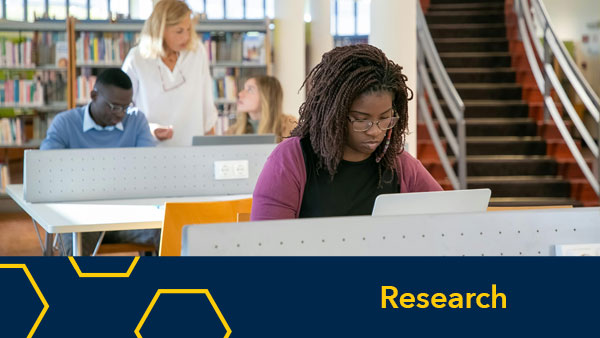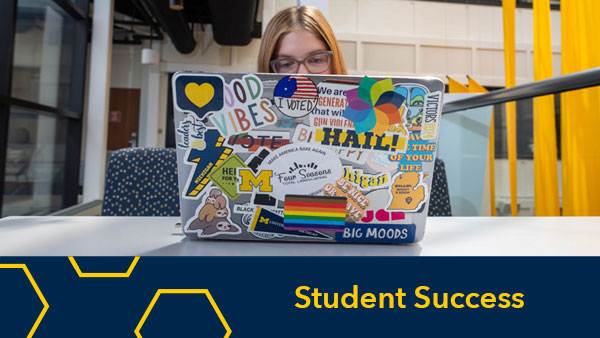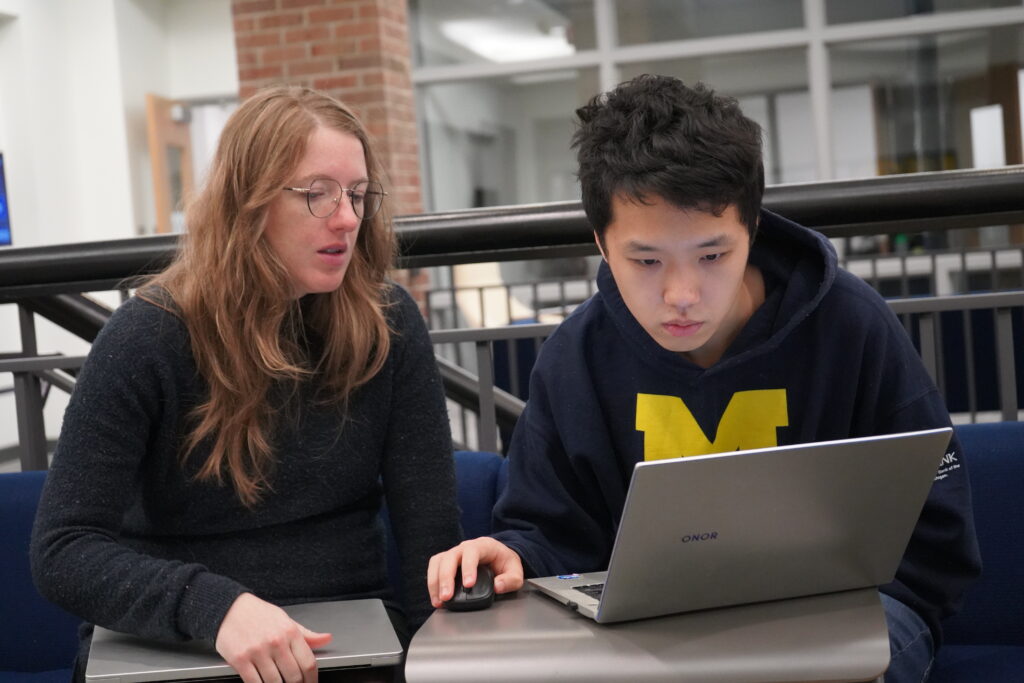
Student Fellows receive mentorship from interdisciplinary team of researchers and gain practical experience in educational research methods
Sean Corp, Communications Lead
The Michigan Union was buzzing with activity as students, faculty and staff weaved their way through presentations and posters. Each one with its own story about how people teach and how people learn. Research on assessment, advising, cognitive performance, artificial intelligence, and more.
The Center for Academic Innovation’s Research Showcase was full of charts, graphs, narratives, and data. So much data. It was a celebration of data, and the work featured on many of those displays came via the work of the Student and Graduate Student Fellows at the center. The annual spring event is a culmination of work for many of the Student Fellows who work with teams across the center to help build the future of education.
The center has a staff of researchers and data scientists, and Student Fellows are always critical members of the team, said Cait Hayward, director of research and analytics at the center.
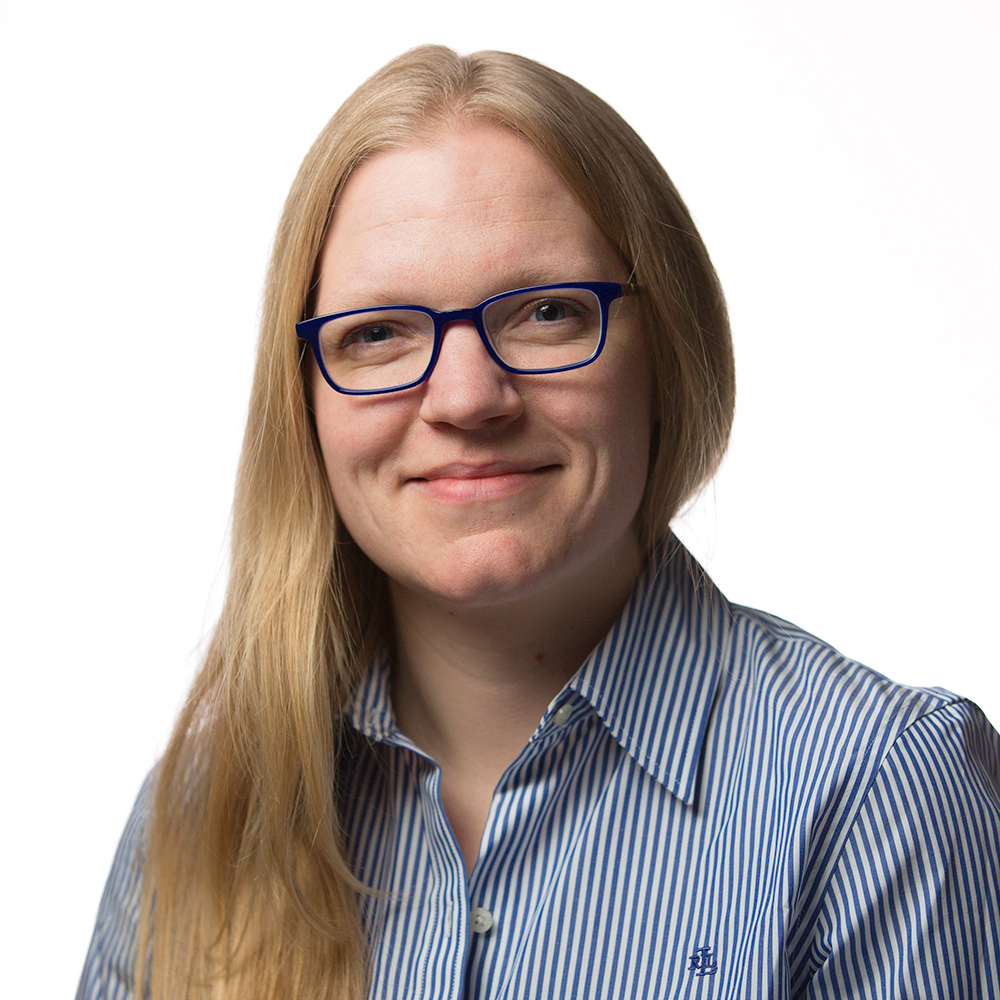
“Our Student Fellows are not only learning cutting edge methods and approaches in the classroom, as students, they are often the target audience for our tools learning interventions. They help us shape the experience for every future U-M student, because they know what they themselves have wanted to see offered,” Hayward said.
The center regularly employs around seven fellows focused on research projects, and their contributions can come in many ways because the center’s researchers have a multidisciplinary background.
“Our team is extremely interdisciplinary,” said Nate Cradit, research scientist at the center. “Students might come to us with a certain research background, but through our work they are exposed to different fields and different ways of conducting research.”
‘Not Traditional Campus Employment’
The research and data analytics team, like other teams at the center, view students as valuable contributors with important skills and insights to share, and also as future innovators who will help shape education and other industries.
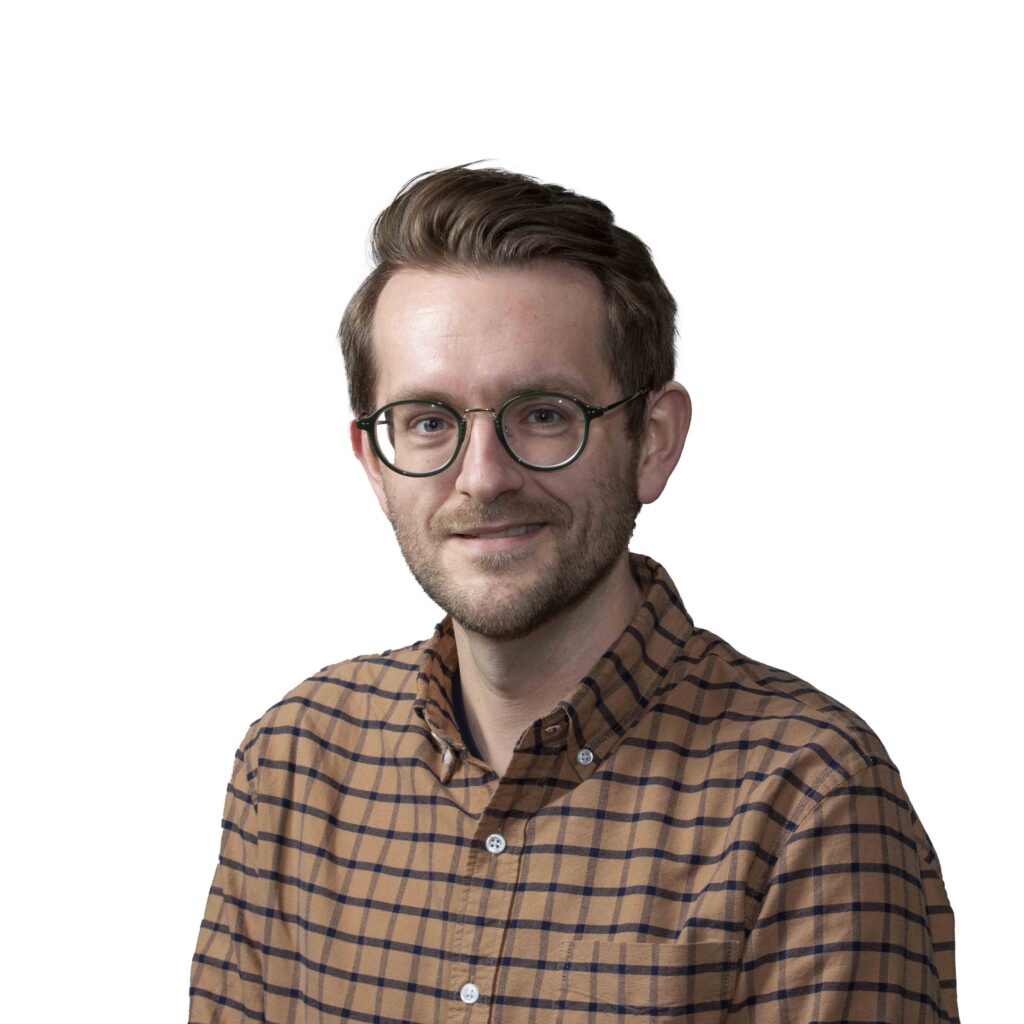
“We take really seriously that our student fellowship is not traditional campus employment. We work hard to set them up to be successful when they graduate, whether that is trying to find a job, apply to to graduate program, or get an internship,” Cradit said.
On the research team, students often have a hand in conducting interviews, sending out surveys, gathering data, processing some of the mountains of quantitative and log data the center collects, and analyzing the data that has been collected.
But they are also encouraged to contribute beyond the data collection, Hayward said.
“Our Student Fellows are active and meaningful contributors to our projects, and that includes conducting interviews, analysis and event conference presentations and co-authoring papers,” Hayward said. “We give our students guidance, but also the hands-on experience to learn skills, and further develop the knowledge that will be important to their careers.”
Alaa Shahin presented at the research showcase after conducting more than 100 one-hour interviews in her nine month fellowship, talking to students about their confidence levels.
“After four months, I had conducted 104 interviews on top of working as a graduate student instructor and getting my master’s. I still don’t know how I did all of that,” Shahin reflected. “I presented some findings and was encouraged to present at the research showcase. I’m so grateful for everything the center did for me and for believing in me,” Shahin said.
“Students find our culture really compelling. They want to be a part of our organization because it doesn’t feel like other places on campus.”
Nate Cradit, Research Scientist Senior, Center for Academic Innovation
Shahin applied for a Student Fellowship position after hearing Hayward speak in a class where she served as a course facilitator. Chatting with Hayward after the class led to a personal sitdown to discuss her career interests, and that led to her job as a Student Fellow, which led to the research project.
Those initial conversations and continued mentorship are critical, Hayward said, and it’s one of the reasons she enjoys working with Student Fellows regularly.
Creating space where students can talk through what they’re learning and what they’re realizing they may want to do with it is so important.,” she said. “It gives them the space to understand who they are and what they want their career path to be. I’m grateful to the many mentors who made this space for me when I was a student, and I want to make sure we’re passing that on.”
An Opportunity to Mentor and to Teach
Cradit, who left a faculty position to take his job at the center in 2021, says it has been a perfect marriage of his interest in teaching and research.
“As a faculty member you’re helping students, and you’re doing research, but you’re also dealing with contention, with competition, and with scarcity,” Cradit said. “Here, there is a level of joy that I was missing as a faculty member. Here, I get to dig deeper. I’m still teaching qualitative research methods, but now I’m able to do it on a small team or one-on-one basis.”
The students respond to that opportunity, and respond to the mission and the culture found at the center.
“Students find our culture really compelling. They want to be a part of our organization because it doesn’t feel like other places on campus,” Cradit said.
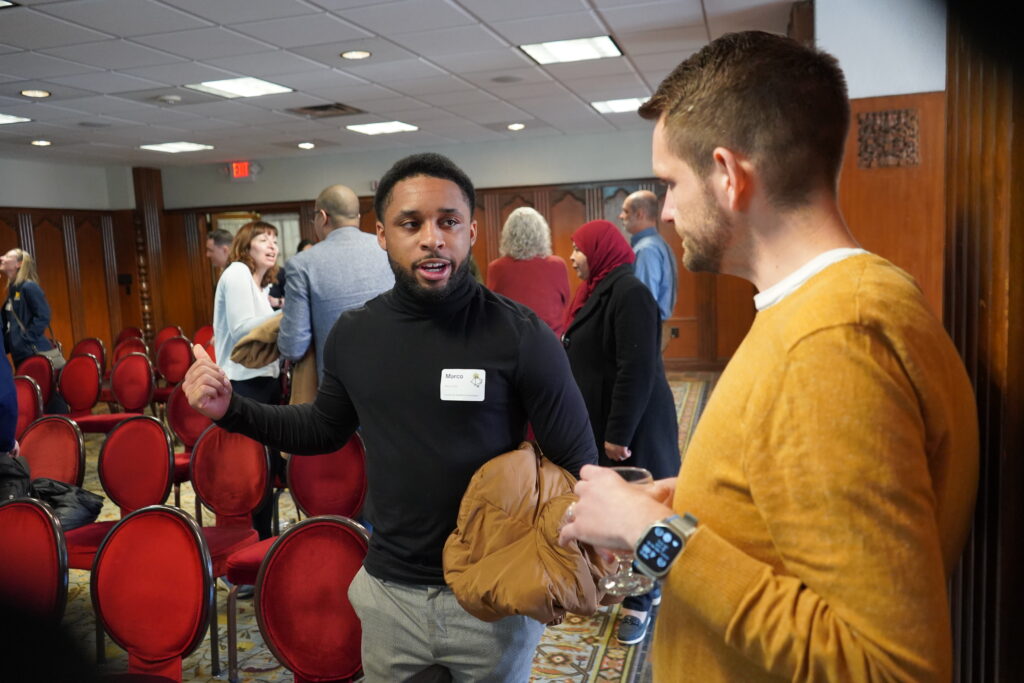
Feeling the Enthusiasm and Energy of Research
Marco Lang, a master’s student and Student Fellow, was one of three speakers invited to give research presentations. Lang discussed his work interviewing more than 70 learners about what motivated them to enroll in open online courses. He said the center was able to not only help him through guidance and mentorship, but also through empowerment.
“As an aspiring UX researcher, my fellowship not only taught me how to be comfortable doing research, the center equipped me with the mindset that I can thrive in this profession. They helped me understand that I am an expert in this field, and that I do have a passion for this work,” Lang said.
Cradit remembers Lang, like many students, wasn’t always brimming with that confidence. At first, he was intimidated by the scale of the global learners project. Then, Cradit said, things began clicking into place, and he saw Lang’s confidence emerge.
“We had a check-in at one point and all that trepidation melted away, and all I saw was his level of excitement and enthusiasm in engaging with this project,” Cradit said. “He was able to think of questions I had never thought of, and we used those for the rest of the study. There is a level of pride in seeing the level of contribution you’re able to make on the work, and students get to play a part in that.”
“The fellowship was eye-opening,” Lang said. “I was able to learn invaluable skills, build an amazing network of mentors and peers, and help me understand how U-M was able to positively contribute to people’s lives around the world. It really taught me the importance of impact and finding value in the work that I do.”
